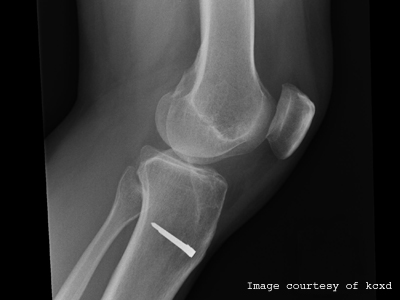Integrating orthopaedic systems: more than a knee-jerk reaction
Posted on 25 August 2011
Integrating orthopaedic systems: more than a knee-jerk reaction
 There are over 300 different types of surgery for replacing knee joints, and each one of these procedures must be rigorously trialed to ensure that it meets health regulations. The VRIC team, with some help from the Software Sustainability Institute, has created software to help simplify the notoriously complex clinical-trial process, by integrating the processes and the information systems used in the trials (it's not exactly brain surgery...).
There are over 300 different types of surgery for replacing knee joints, and each one of these procedures must be rigorously trialed to ensure that it meets health regulations. The VRIC team, with some help from the Software Sustainability Institute, has created software to help simplify the notoriously complex clinical-trial process, by integrating the processes and the information systems used in the trials (it's not exactly brain surgery...).
Orthopaedic research facilities support a hugely complex infrastructure that is needed to run clinical trials. To make matters worse, the infrastructure must also be shared by the partners involved in the trial: the medical research council and the National Health Service. It falls to the research facility to ensure that the right infrastructure is being used in the right way by the right partners - and that is a significant challenge.
The VRIC team, led by Dr Gary Wills at the University of Southampton, worked to improve software that was in use at the UCL Royal National Orthopaedic Hospital. This led to the creation of MyVric: software which helped clinicians to share results in a way that complied with the structure of the clinical trial.
Dr Wills knew that the MyVric software would be useful to other health organisations around the world. But before he distributed it, Dr Wills knew that an independent assessment of the software would be invaluable in identifying the problems that others would experience when trying to use the software. He asked the Software Sustainability Institute to take a detailed look at MyVric and make suggestions on how to improve it.
The evaluation was described as "Outstanding" by Dr Wills. It covered the MyVric code, documentation and web presence, and made a number of practical recommendations for improvement. The VRIC project has now fulfilled over half of these recommendations. Best of all, the VRIC team have now reported interest in the software from other schools of medicine and even in neurosurgery - so it could soon be about brain surgery after all!

